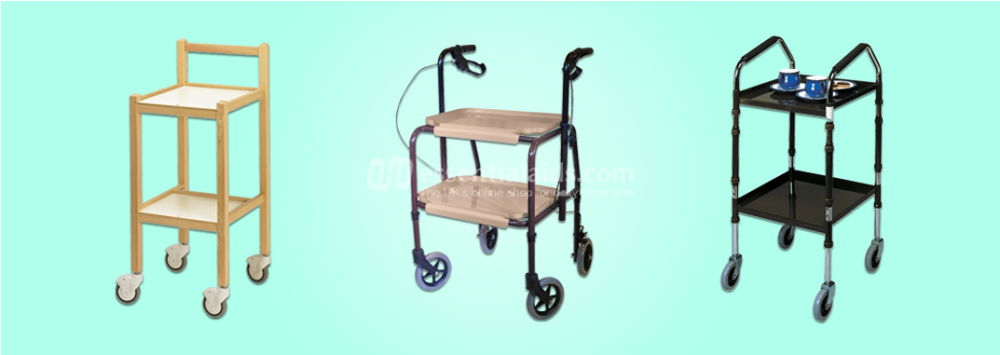
Kitchen Gadgets and Equipment Which Help People with a Weak Grip
Sally Madeley-Carr, OT04 Mar 2021
Using specially adapted equipment is an important part of keeping ones independence later in life.
The modern market for mobility and disability aids is innovative and ever-expanding.
Inventors across the world are coming up with clever practical solutions to the challenges that impaired physicality may throw at us.
As the population of the UK grows older, there is more of a drive than ever to produce living aids to help with every-day tasks.
Physical dexterity issues often arise in later life, leading to difficulty in areas which were previously routine.
In the kitchen, this could mean challenges like chopping food, or holding it steadily in place.
The problems tend to be associated with a loss of balance, dexterity, grip strength or grip precision.
Arthritis impacts over 10 million people in the UK and is one of the most prevalent conditions in the over 60s.
It leads to joint inflammation and pain or discomfort, especially when a tight grip is required.
In many cases it affects the hands and fingers, which in turn may make it difficult to grip or control standard kitchen implements like knives or forks.
It is important to be aware of the large and ever-growing range of relevant products available, if you or someone you know is in this situation.
If you have access to an occupational therapist, they will be able to advise you on equipment which might work for your specific needs.
Often, simple awareness of the products which may help someone, is the most important part of the process.
An occupational therapist will also be able to help you on the organisational aspect of the kitchen.
If you have limited strength, flexibility or dexterity, standing for any length of time, or reaching to high shelves may be problematic.
If these issues are identified, practical plans can be put in place to make them less impactful on a day-to-day basis.
Creating space to move
If you live alone and use a walking frame to move around your kitchen, its important to make space and to make sure any potential obstacles are removed.
Pathways without obstruction are crucial if you are to move safely.
If you are unsteady on your feet and use a walking frame, a kitchen trolley or a rollator in order to move around, its even more of an imperative to make sure obstacles do not get in the way.
In the kitchen you might create various bases at which you have particular pieces of equipment, where everything for a particular task is within easy reach.
Using a kitchen trolley is equipment many people use to move food and drink around the kitchen or to and from the dining room.
Special kitchen equipment
If you have arthritis or another condition which weakens the wrists, hands or arms, you may find it difficult using standard food preparation tools.
Similarly, if you have a tremor mealtimes may be challenging.
Essential Aids supplies a wide range of kitchen equipment which helps those in this situation.
Many stroke survivors, for example, may be left with the use of a single hand, due to partial paralysis or weakness on one side of the body.
Angled utensils are one such adaptation which may help. These have handles which form an L-shape which requires less strength in the wrist to use effectively.
Products like the Right Angled Carving Knife fit into this category, making an everyday task just that little bit easier.
Generally speaking, handles with a larger diameter are easier to control if you have a tremor in the hands.
Narrow knives, forks and other eating and food preparation tools may be too light or require too much of a squeeze to be comfortable.
Along with some other brands, Good Grips utensils and cutlery go some way to solving this problem.
This is a range of kitchen equipment featuring large, comfortable handles. The grips also have a soft-touch surface, making them a pleasure to use!
Their extra size makes them more controllable than most of the alternatives, especially for people with reduced dexterity.
The Good Grips Swivel Peeler, for example, is a potato peeler with an oversize handle and a swiveling head. This product receives excellent customer feedback, as does the Good Grips Y Peeler.
The Y shaped version has the wided, splayed cutting section which some users prefer.
The Good Grips handles work so well that the manufacturer also uses them for other tasks requiring precise manual dexterity. There is, for example, a dressing aid which uses the same type of oversized grip.
Known as a Button Hook it helps the user fasten buttons without requiring them to pinch and control the button with their finger tips.
Again, this is an action which many people with certain conditions find either painful or difficult.
Also within the Good Grips range are their knives and forks. As with the peelers mentioned above, these have the trademark large, built-up handles.
Knives, forks and spoons are available, making these cutlery sets a good choice for many who find standard cutlery difficult to use.
Special jar, bottle, and tin openers
Opening stiff lids is a problem for many people, not just those with reduced grip. For those with arthritic fingers, it can be a huge practical problem.
Essential Aids supplies a range of devices to overcome this issue, helping the user get more purchase on the lid they are trying to open.
Good Grips make a good quality jar opener, which has an open wedge design along with the tried and test oversized grip.
The jar lid slots inside the wedge of this kitchen aid, where small teeth hold it in position. The handle then provides leverage to turn and twist the lid from the jar.
It is ideal for removing lids with diameters from 13 to 95mm (? to 3 ž inches).
Using increased leverage is a fundamental part of most openers at Essential Aids, like the simple and popular Turn Key, for example.
This is designed to twist off tops commonly found on orange juice cartons.
Like the Good Grips lid opener, its jaws clamp on the lid and the long handle provides leverage to turn it.
While the two gadgets mentioned here serve only one purpose, several available at Essential Aids are able to tackle more than one type of lid or top.
The Multi Use Opener for instance, is the Swiss Army Knife of openers. It has numerous jaws, angles and clamps which lever, twist and wedge different kinds of lids open.
Opening tins of food is another challenge with increased difficulty for those with arthritic fingers.
Conventional tin openers require a fairly tight grip and power in the fingers in order to lock the jaws in place and to turn the handle.
This is another device which the Good Grips team have put their mind to, producing a tin opener with large-diameter levers and strong locking jaws.
The levers do not dig into the hands as standard tin openers might, and are fair more comfortable in the hand.
While that is great for conventional tins, many cans are now fitted with ring pulls more associated with fizzy drinks.
The upside of this is that in theory they dont require any extra tool to open.
Again though, this is not the case if you have painful arthritis or weakened fingers.
The Can Key from Essential Aids is a simple gadget which overcomes this issue.
Its special shape allows the user to effectively jemmy the ring pull upwards, with its oversize handle providing leverage to complete the job.
While the devices mentioned so far use leverage, an alternative are those which help you gain extra purchase on a lid, in order to twist it off.
The popular and simple design of the Bottle Opener and Knob Turner is in this category.
Made of a rubberised plastic, it fits snugly over a conventional twist-off bottle top and its ribbed interior grips the plastic, making it easier for the user to turn.
For larger lids like those on jam jars, the Dycem Jar Opener is a good option.
It has a conical design, the widest section of which fits over the lid.
As with the bottle top opener, it provides great purchase, making twisting much easier than with the hand alone.
Spreader boards and food preparation stations
Essential Aids has a whole section devoted to food preparation aids, among which are special chopping boards with unique features.
Holding food in place to be sliced, chopped etc, is a challenge if you have reduced dexterity, balance or a hand tremor.
Food preparation boards come with spikes, raised lips and clamps, all designed to help keep food under control and prevent it slipping around on the worktop.
The popular Food Workstation for example, has numerous inventive features, allowing the user to grate, slice, spread and do a host of other tasks.
It also has an extra-large clamp, allowing mixing bowls to be held firmly in place.
An innovative kitchen aid like this provides an excellent example of how one piece of equipment can make a huge impact towards keeping independent at home.

Sally Madeley-Carr, OT
Sally qualified as an Occupational Therapist in 1996 and is a well-respected professional in the field of rehabilitation equipment and living aids. She has worked in private practice and within the NHS, developing a broad experience with adults and children. Click here for Sally's registration with the Health and Care Professions Council. The HCPC regulates health, psychological and social work professionals in the UK.